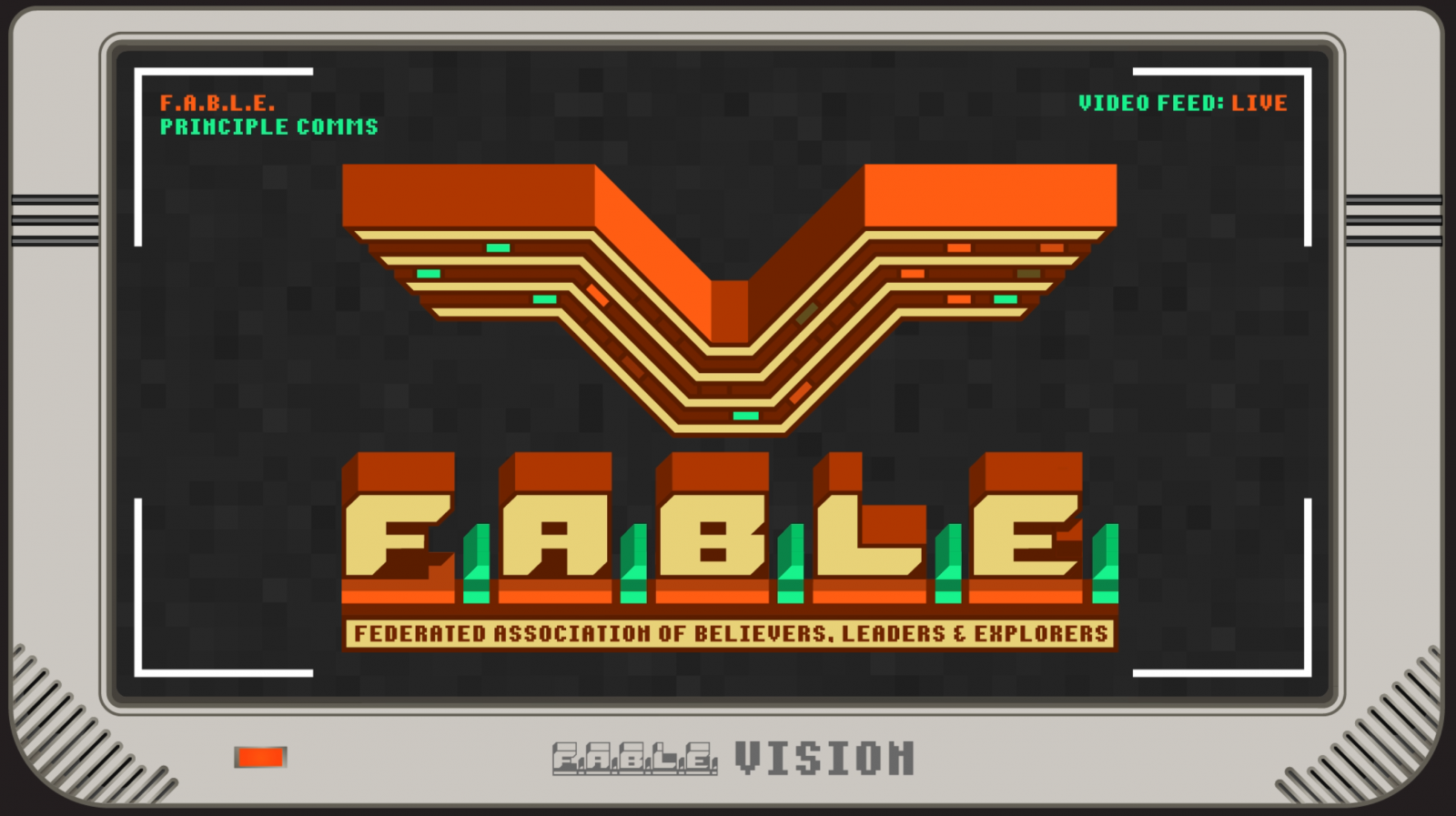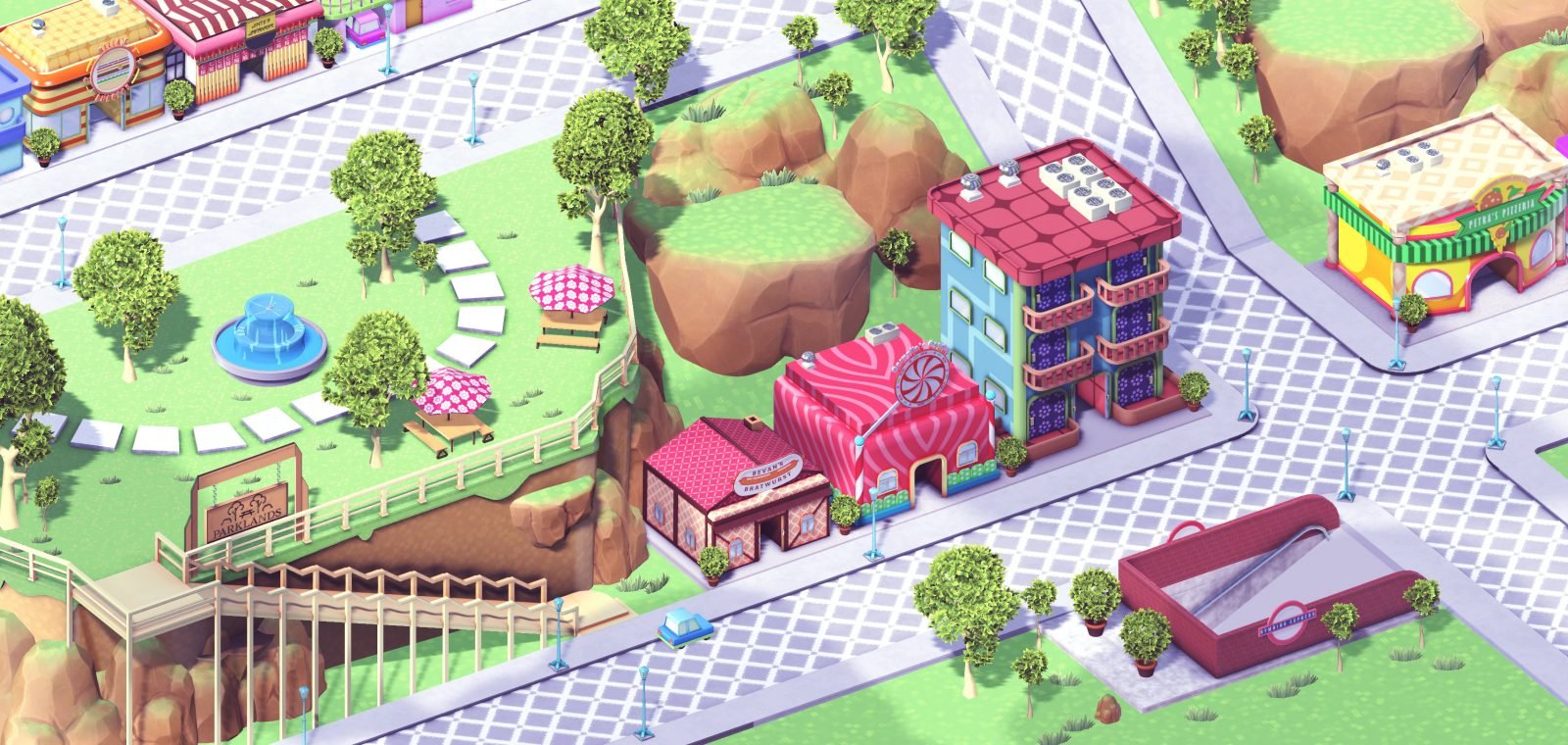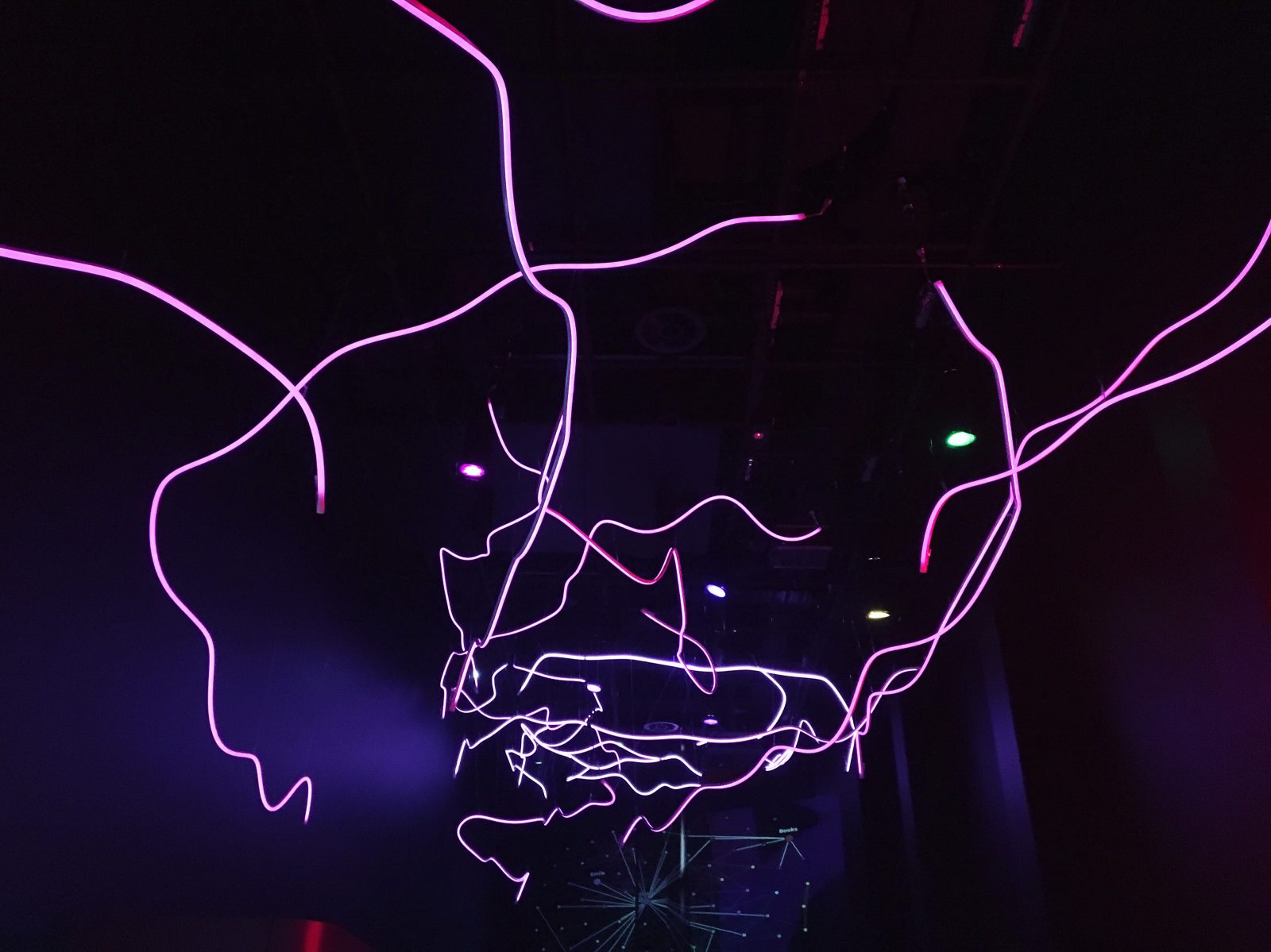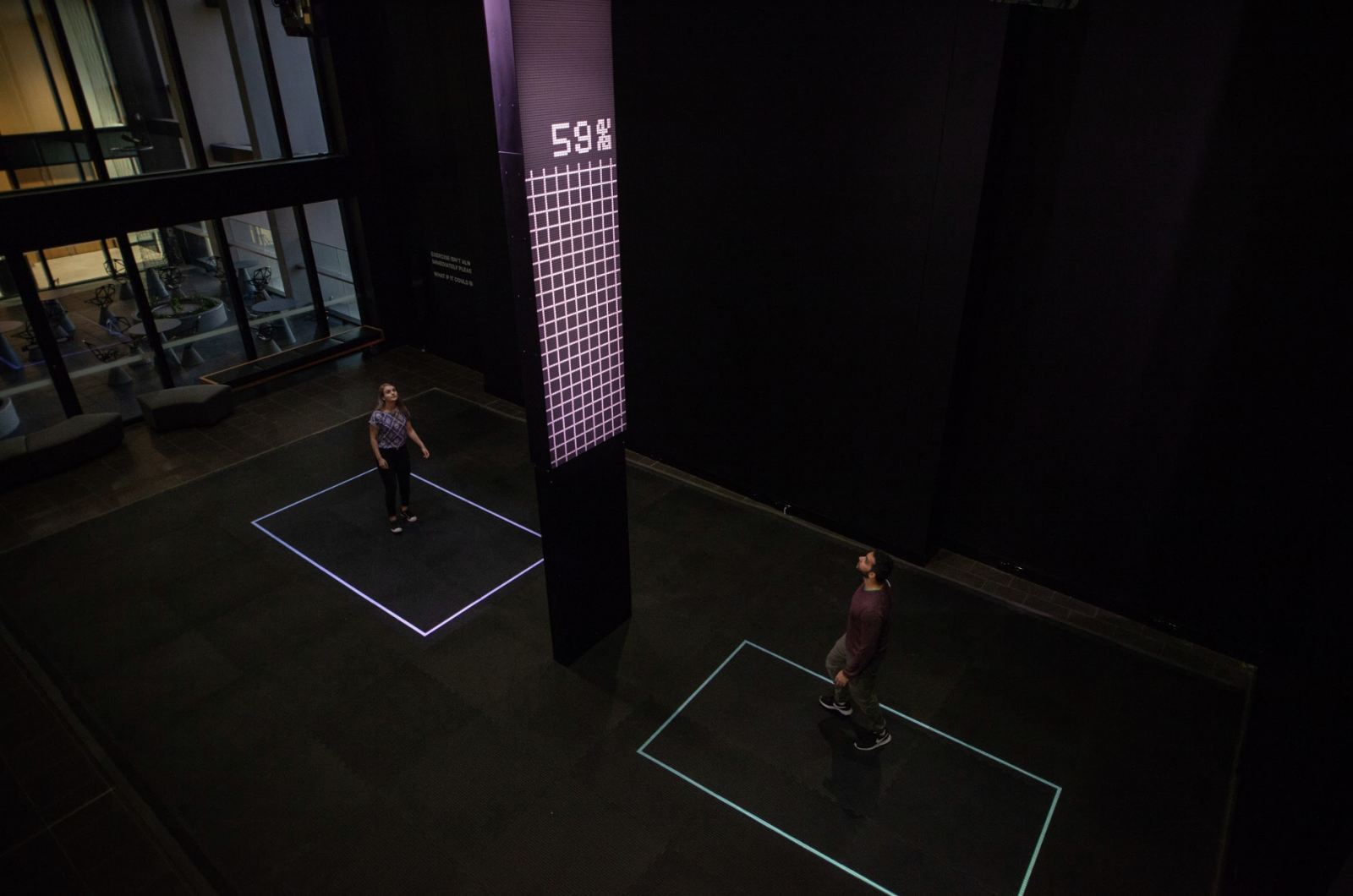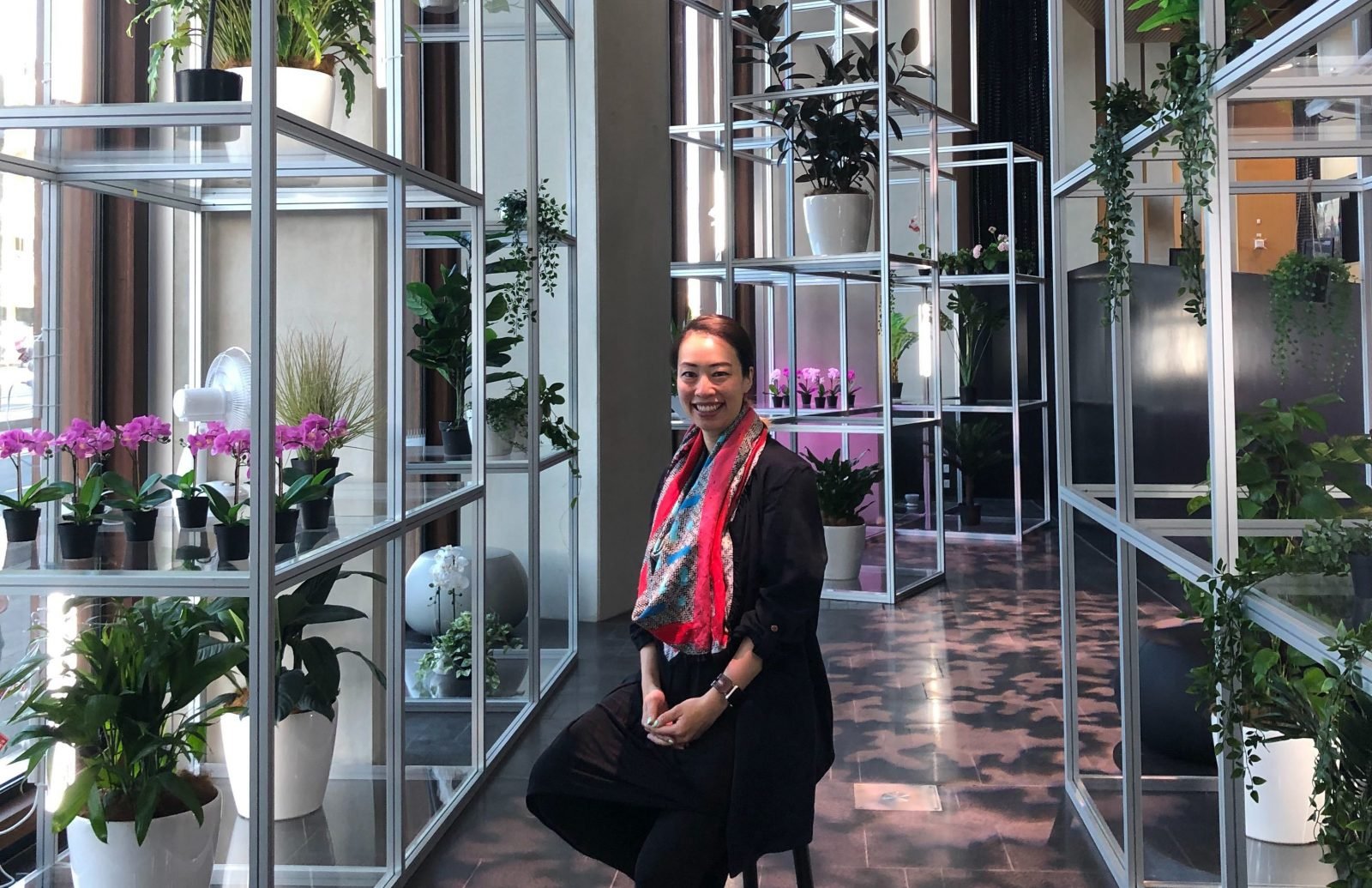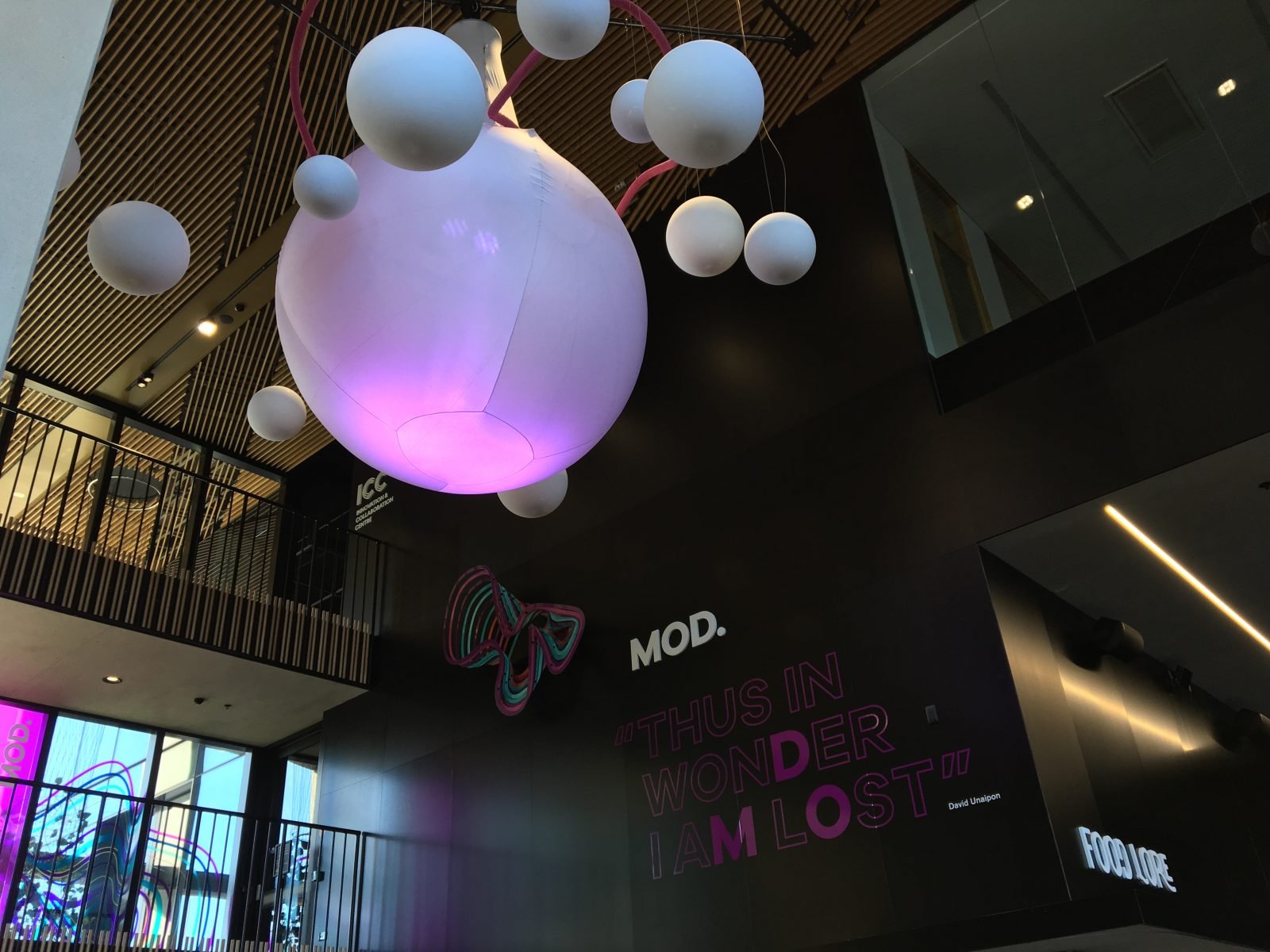Do you want to better understand people?
Make it a career with UniSA
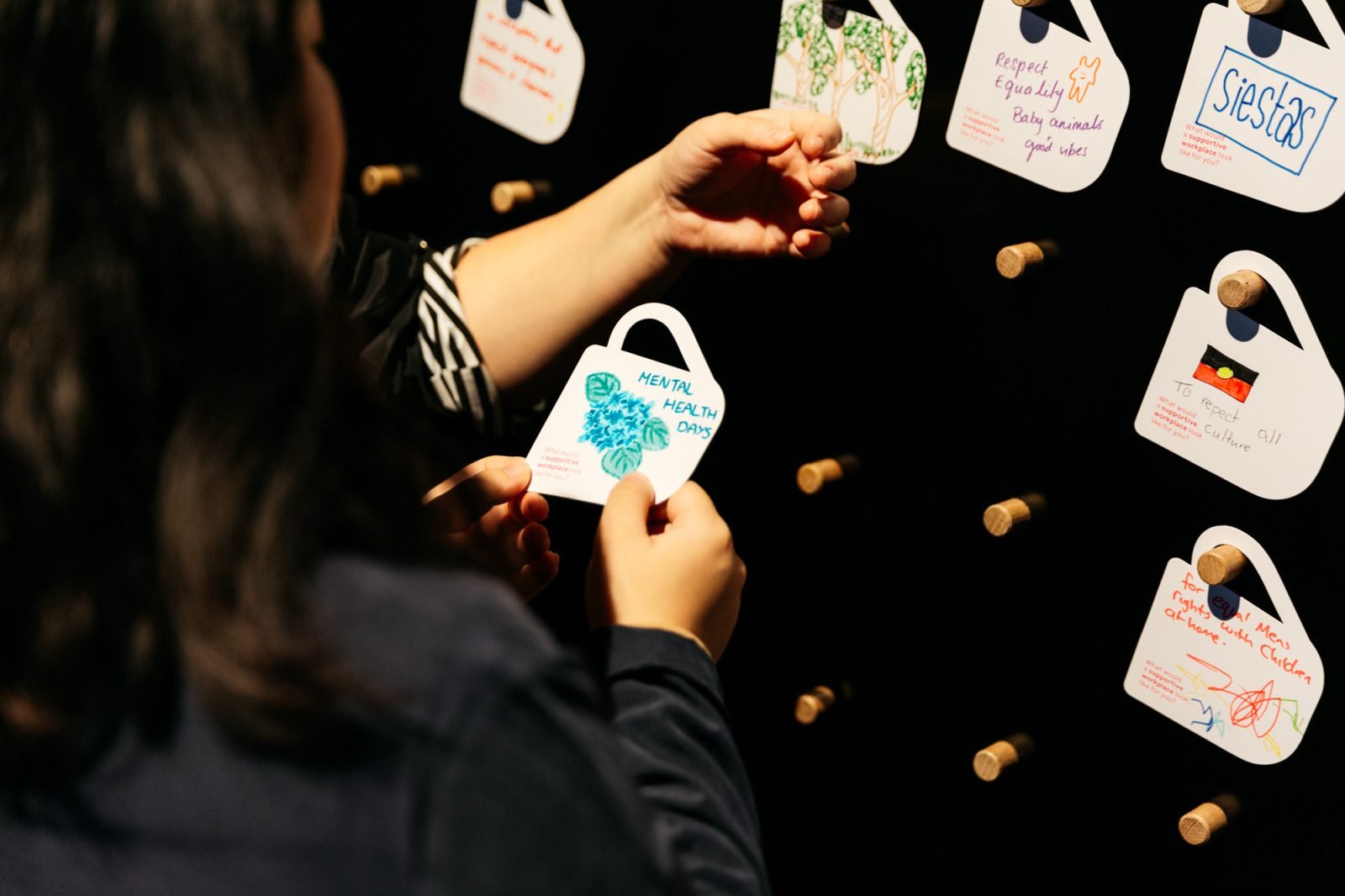
Exhibit Details
Open MayOct 2019
Ground LevelLecture Gallery
- MOD.'s Take
- Delve Deeper
- Fresh Perspectives
When so many of our interactions take place online, social connection is more important than ever. Social connection is so meaningful. It’s important to feel like you have friends to back you up, a supportive team at work, and there are all sorts of benefits to communicating in your own language. These things impact us, our mental health, and our wellbeing.
At MOD. you can explore the impact of reviving a dead language and think about the emotions connected to words you use online. Consider the role of using your phone at night – is it making you happier or sadder? – and, finally, consider what you need out of your workplace.
Social connection in the community
The Barngarla language and wellbeing project is looking to measure the impacts of language reclamation and wellbeing and mental health. It’s really about looking to understand how language and learning your traditional language can impact your wellbeing as an individual, but also as a community. It goes back to restoring traditional values and traditional cultural knowledge beliefs in being able to come together as a community, learn your birthright, and express how you feel in your own traditional language. — Seth Westhead, researcher
For whatever reasons we’ve lost our language, the older people have died, there’s the stolen generation which I was a part of, and so a lot of culture and language has been lost. With us coming together it’s enabled us to share a part of our history that we have lost. — Lavinia Richards, project participant
It’s a big part of us and a big part of our country. Bringing it back to life is breathing new life back into the country. [When we speak Barngarla] we feel more connected to our country, more connected to our family and community. — Jenna Richards, project participant
Social connection at home
A really large number of children starting from 7 years of age were using their phones quite frequently between the hours of 10pm and 6am. And so we found that those people who were more likely to use their phones between these hours had an increased chance of negative outcomes, but also some positive outcomes like building friendships. Social media use can help us to be happy and feel happy at times, but it’s not sustainable. That’s why we have to go back and check our phones because we need that next hit of happiness. Although there can be some positives… we also know that this doesn’t replace face to face interaction. — Stephanie Centofanti, researcher
Social connection at work
What we’ve found is that there are certain things that can affect happiness at work. One is the level of support at work. So if your manager is concerned about your psychological wellbeing they’ll make sure that your voice is listened to… [This is important] for yourself, having quality work, supportive supervisor, collegiate support, these things are really great for your self esteem, your personal development, for learning, for having a really great time, and for having a good life experience at work. — Maureen Dollard, researcher
Social connection online
The fourth element of this gallery is the Hedonometer, a giant hanging sculpture in the MOD. foyer. You can read more about it here. Within the gallery, contribute to real research by helping to rank words based on how sad or happy they make you feel.
Discover more:
Explore:
- Barngarla language app on the Apple App Store or Google Play
- The Resilient Youth project, including data on social media use and young people
- Summary of the Australian Workplace Barometer results
Watch:
Read:
- Happiness is the metric of the future
- What made people happy in the last 24 hours?
- Barngarla language revival appears to be linked to wellbeing
Listen:
- TED Radio Hour on happiness
- Ngangkari (traditional Central Australian healers) have been working on a meditation app in language to improve their community’s wellbeing
Find this exhibit at the UniSA Library
We worked with a group of young people to review Connect For. Here’s what they had to say…
When you are at work you don’t think about these things. But then when someone asks you these questions then you get to know what sort of position you are in. If you are working and working and working then you don’t often stop and think about how happy or sad you are. I wish there were more questions! — Denish
Workplaces are our second family environment. It should be friendly and respectful always. It was good that most of the cups represented a safe work environment. — Abdul
The Barngarla video is my favourite part. They project participants are so lovely to watch. They’re so happy to speak their language. Oh, and the coffee smell is pretty great too. — Sara
Credits
- Maureen Dollard and Ali Afsharian Research, Asia Pacific Centre for Work Health and Safety
- Stephanie Centofanti Research, Youth Resilience Survey
- Jenna Richards, Emmaline Richards, Lavinia Richards, and Kaiden Hancock Project Participant, Barngarla Language Project
- Leda Sivak and Seth Westhead Research, Barngarla Language Project
- Lewis Mitchell Research, Hedonometer
- Exhibition Studios Design and build
- Walls That Talk Build

